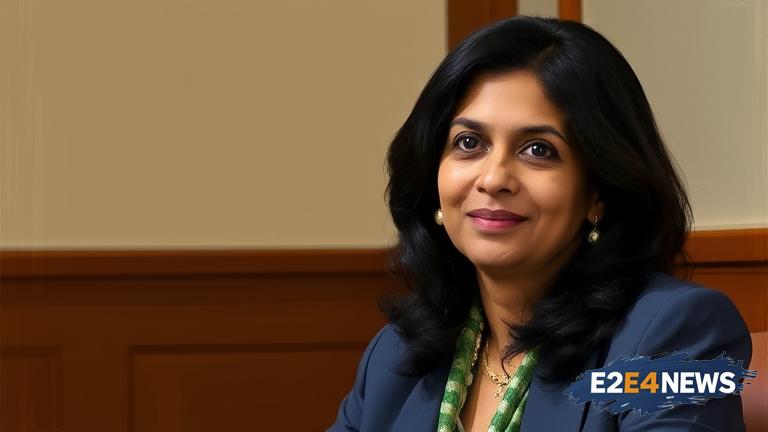Gita Gopinath, a renowned Indian-American economist, has announced that she will be stepping down from her position as the Deputy Managing Director of the International Monetary Fund (IMF) in August. She will be rejoining Harvard University, where she previously served as a professor, to continue her academic pursuits. Gopinath has been a key figure at the IMF, playing a crucial role in shaping the organization’s economic policies and providing guidance to countries around the world. During her tenure, she has worked closely with the IMF’s Managing Director, Kristalina Georgieva, to address various global economic challenges. Gopinath’s departure from the IMF is seen as a significant loss for the organization, as she has brought a unique perspective and expertise to the table. However, her return to Harvard University is expected to be a major gain for the academic community, as she will be able to share her knowledge and experience with students and colleagues. Gopinath’s research focuses on international macroeconomics, trade, and investment, and she has published numerous papers on these topics. She has also been a vocal advocate for greater diversity and inclusion in the field of economics, and has worked to promote the careers of women and underrepresented groups. Gopinath’s decision to leave the IMF is not entirely unexpected, as she had previously announced that she would be stepping down from her position at the end of her term. However, the news has still sent shockwaves through the economic community, as Gopinath is widely respected for her expertise and leadership. The IMF has not yet announced who will replace Gopinath as Deputy Managing Director, but the organization is expected to conduct a thorough search to find a suitable candidate. Gopinath’s legacy at the IMF will be remembered for her tireless efforts to promote global economic stability and cooperation. She has been a strong advocate for the use of data and evidence-based policy making, and has worked to strengthen the IMF’s analytical capabilities. Gopinath has also been a key player in the IMF’s response to the COVID-19 pandemic, working to provide emergency financing and policy advice to countries around the world. As she prepares to leave the IMF, Gopinath has expressed her gratitude to her colleagues and the organization’s membership for their support and collaboration. She has also emphasized the importance of continued international cooperation and economic stability, and has urged policymakers to remain vigilant in the face of ongoing global challenges. Gopinath’s return to Harvard University is expected to be a major boost for the institution, as she will be able to share her knowledge and experience with students and colleagues. She will also be able to continue her research and writing, and is expected to remain a prominent voice in the field of economics.
